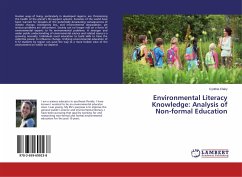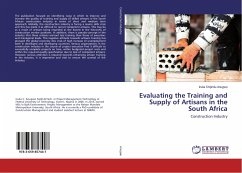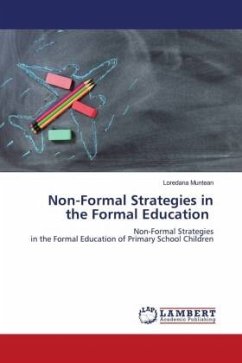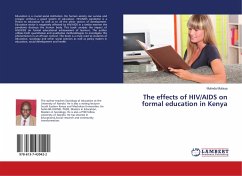
Benefits Of Non-Formal Education To Jua Kali Artisans
A Study Of The Informal Sector Business Institute (ISBI), Nairobi, Kenya
Versandkostenfrei!
Versandfertig in 6-10 Tagen
39,99 €
inkl. MwSt.

PAYBACK Punkte
20 °P sammeln!
The data collected for the study was both qualitative and quantitative in nature. Descriptive statistics were used to analyse quantitative data. Qualitative data was analyzed by coding categories, which were organized according to particular research questions. The researcher then evaluated the information collected with a view to establishing its usefulness and answered the research questions thus enabling the researcher make recommendations based on the findings. This study investigated how and to what extent non-formal education provided by the Informal Sector Business Institute (ISBI) bene...
The data collected for the study was both qualitative and quantitative in nature. Descriptive statistics were used to analyse quantitative data. Qualitative data was analyzed by coding categories, which were organized according to particular research questions. The researcher then evaluated the information collected with a view to establishing its usefulness and answered the research questions thus enabling the researcher make recommendations based on the findings. This study investigated how and to what extent non-formal education provided by the Informal Sector Business Institute (ISBI) benefits the Jua Kali artisans in business development services in Makadara area of Nairobi. The researcher came up with recommendations that may improve this initiative. Using a Z-test statistic, it was found that those artisans who had undergone the ISBI training had a significantly higher percentage of artisans who had business plans, kept business records and practiced business ethics than those artisans who had not undergone the ISBI training.












